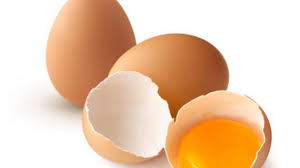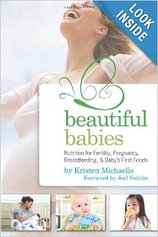 Fish eggs have long been a part of the diets of traditional peoples, especially during preconception, pregnancy, and early childhood. Fish eggs have long been a part of the diets of traditional peoples, especially during preconception, pregnancy, and early childhood. A Little Back-Story I thought I'd change up the topic from purely birth-related information to something else that I feel strongly about- preconception and prenatal nutrition. I started out my first pregnancy like the majority of Americans...I absolutely believed the majority of mainstream health advice and thought that a low-fat, mostly vegetarian diet would be healthiest and help me to maintain a healthy weight and avoid cancer, heart disease, and other chronic illnesses. I exercised faithfully and consumed way too much cereal and tofu (I sincerely believed that tofu was delicious! Perhaps because it had been so long since bacon, haha). Despite my strict adherence to this dietary dogma, I found myself with a very slow metabolism and increasingly worse anxiety over really unimportant things. I tend to be a calm individual, so I felt this wasn't really "me". A doctor that I visited suggested that I had PCOS, which I didn't believe, although he assured me that "I have seen many cases of PCOS, and that's what you have. Where would you like to pick up your prescription?". Yes, he really said that, without a verified blood test or anything. I declined and a week later received an email admitting that I did not have PCOS and that I must just have "a slow metabolism". Go figure. Thanks for nothing. The tests did establish that my cholesterol was VERY low. The doctor thought this was good, but I wasn't so sure. SURPRISE! 3 weeks later I find out that I really stink at Fertility Awareness Method (I had been using it for a whopping 5 months) and I'm pregnant! Another nail in the coffin for PCOS. I very fortunately had no morning sickness and spent the first 12 weeks of the pregnancy in denial, but when I saw the tiny baby on the ultrasound screen at that first 12 week appointment, I knew....I NEED TO LEARN ABOUT BABIES. I had never planned on having children. I never even babysat. My daughter was the first newborn that I had ever held. I was woefully unprepared. I jumped into researching and discovered cloth diapers, elimination communication, normal birth, and everything else I could find. I also noticed that I started craving foods that I didn't usually eat. Butter. Eggs. Bacon. Whole milk. I had lived most of my lives using these foods very sparingly, but I couldn't deny that I now needed those foods. And when I started allowing myself those foods during pregnancy...I became happier than I had been in a long time. Turns out there is a good reason for that. Nutrient-Dense Food Makes You Happy and Healthy My body was craving eggs and butter because my low-fat diet had deprived me of a lot of nutrients that need FAT to be properly utilized by the body. The depletion of these nutrients was likely contributing to my anxiety, because your body needs fat and cholesterol to regulate hormones and mood. Building a baby requires a LOT of nutrients. My body knew that I needed to beef up on natural vitamins A, D, and K. Most people know that if the mother is deficient in certain nutrients, the body will steal these from the mother's body to preserve the baby as much as possible. But many women now have been on low-fat, processed food diets for ten years or more! A woman who is having a baby at 25 may have been dieting (as I had been) since she was a teenager. Many women are now waiting until after their careers are established to start a family, and may have been dieting for 15+ years before conception of a child. This absolutely can affect the health of the mother during pregnancy, AND the baby's development. Dr. Chris Masterjohn summarized some of the common denominators in prenatal and preconception diets of traditional cultures studied by the dentist and researcher Weston A. Price. (Interestingly enough, Weston Price expected to find that healthy groups isolated cultures would be eating mainly vegetarian or even vegan diets. Instead, he found that the groups with the healthiest reproduction, resistance to disease, and minimal cavities consumed diets balanced in vegetables, properly prepared grains, and nutrient-dense animal products). Here is an excerpt of a very detailed article that you can read in it's entirety here. "All groups that had access to the sea used fish eggs; milk-drinking groups used high-quality dairy from the season when grass was green and rapidly growing. Some groups used other foods such as moose thyroids or spider crabs, and African groups whose water was low in iodine used the ashes of certain plant foods to supply this element.5 These foods were added against the backdrop of a diet rich in liver and other organ meats, bones and skin, fats, seafood and the local plant foods." Did you get that? Fish Eggs Whole Raw milk from grass-fed dairy (including butter and cheese) Thyroid glands Shellfish Organ meats Bone broth Local plant foods and grains Sounds crazy, right?? Gross, even? Why were these foods so important? Weston Price stated that all of these peoples would go to great lengths to obtain these foods for their pregnant and nursing mothers. They couldn't run to Trader Joe's or Whole Foods. Sometimes they would travel for days to procure fish and shellfish. Turns out that these foods contain large amounts of vitamins D, A, K, and other nutrients such as calcium, phosphorus, sulfur, iodine, and zinc. All of these are necessary for optimal development of the baby's brain, skeleton, reproductive system, eyes...everything! Liver and other organ meats are a great source of Folate, which is known to prevent many varieties of birth defects. Although some studies have shown that too much folic acid can contribute to some cancers, folate is the natural form of this nutrient and is essential for developing babies, and there is no known harmful limit. Vitamin A deficiency has been shown in numerous studies to contribute to birth defects, and plants contain a form that is not utilized effectively by many individuals. Preformed vitamin A is found abundantly in organ meats, shellfish, fish eggs, and raw, grass-fed dairy. The advantage to using whole foods, no matter how foreign to us personally, over prenatal vitamins, is that foods generally contain a balance of essential nutrients, as opposed to a high concentration of one or the other. Take fish eggs, for example. Dr. Masterjohn explains: "Fish eggs are especially rich in cholesterol, vitamin B12, choline, selenium, calcium, magnesium, and omega-3 fatty acids. They contain a modest amount of most fat-soluble vitamins but their vitamin K2 content is unknown." All of those nutrients are available from one tablespoon of fish eggs! If you're not a fish egg person, try a free-range, local chicken egg, which provides most of the same nutrients. I have grown to love egg yolks and I'll add them to pretty much anything for an instant, natural multi-vitamin boost. Now I know why I craved eggs during my pregnancy! I'm glad that I gave into those cravings for whole milk and eggs, because despite my previous low-fat diet I did have a healthy baby, and my moods stabilized. I am never looking back, and guess what? My addition of butter, ghee, whole raw milk, and plenty of eggs to my diet have not packed on the pounds. I'm basically the same size I was before, but about 10 pounds lighter. The joke was on me. Whole foods keep you healthy, and your baby healthy! (Also, they taste really good!)
There is WAY too much to write on this topic; this article doesn't even scratch the surface. If you want to learn more about foods and nutrients that can help you during your pregnancy and for optimal development of your baby, stay posted for future blog posts or give me a call. I can talk about this stuff ALL DAY. I also recommend reading Dr. Masterjohn's entire article, Vitamins for Prenatal Development, Conception to Birth. You may also be interested in this book, Beautiful Babies.
0 Comments
Leave a Reply. |
Author- Sara
I look at birth from the perspective that our bodies are wonderfully made, and if we really believe that and work with the birth process and nourish our bodies properly, they will function optimally, most of the time! Archives
November 2019
Categories
All
|


 RSS Feed
RSS Feed
